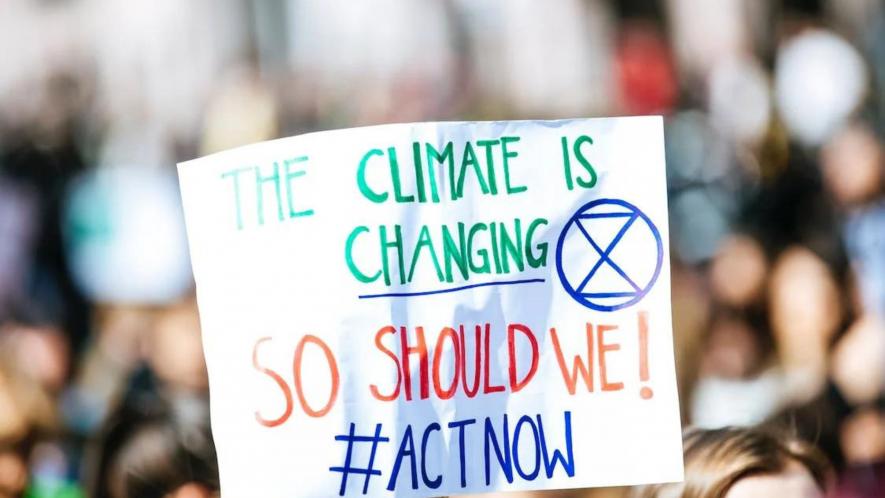UN Report Reveals Gaps Between Climate Action, Reality

Representational Image. Image Courtesy: Pexels
The first Global Stocktake report is out and it highlights the gaps in climate action and the need for massive action by countries in order to meet the goals of the 2015 Paris Agreement.
Undoubtedly, progress has been made but far behind what is required, and efforts need to be scaled up massively across the globe, the report suggests.
The report has been prepared by the United Nations Framework Convention on Climate Change (UNFCCC) secretariat. The (synthesis) report is a technical dialogue based on the inputs from parties of the Paris Agreement, international bodies and non-party stakeholders.
Data collection for preparing the report started in 2021 and a technical dialogue was carried out in each of the three meetings in 2022 and 2023. These were chaired by two nominated co-facilitators Farhan Akhtar and Harald Winker with the assistance of the UN climate change secretariat. The technical discussion encompassed various topics, including climate mitigation and adaptation, support and damage and response measures.
In a comment about the dialogues held before the report was prepared, Harald Winker was quoted to have said, “The technical dialogues were based on the best available science, drawing on the latest findings of the Intergovernmental Panel on Climate Change (IPCC) and other sources of knowledge with broad participation of experts and non-party stakeholders with diverse backgrounds.
“Across the discussions, it was clear that the Paris Agreement has inspired widespread action that has significantly reduced forecasts of future warming. This global stocktake is taking place at a crucial moment to inspire further global action in responding to the climate crisis.”
WHAT AND WHY OF STICKTAKE
The Global Stocktake, designed under the Paris Agreement, is a way of assessing the global response to the climate crisis, meaning how nations are doing and how far they lag in fulfilling the aims of the pact.
To check how countries are doing, the Paris Agreement said that they should assess the progress every five years starting in 2023. The Stocktake is intended to inform what the countries should consider as their contributions to mitigate the climate crisis by 2025.
Nearly, 200 countries signed the Paris Agreement and agreed to limit global warming to 2 degrees Celsius above the pre-industrial level and further limit it to 1.5 degrees Celsius to avoid the worst form of climate change impact. Every country has its nationally determined goals to contribute to achieving the Paris Agreement’s goals.
The Global Stocktake report will let all the countries joining COP 28 (Conference of Parties) this year in Dubai assess how far they lag and how fast they could achieve the goals.
The report, published on September 8, summarised 17 key technical findings resulting from the discussions. Overall, the report, while recognising the fact of progress being made, suggests that much more still needs to be done.
“More than 137 non-party stakeholders submitted input on their actions and support for the Paris Agreement goals. In total, over 170,000 pages of written submissions were received, and we had over 252 hours of meetings and discussions over the three meetings of the technical dialogue—in plenaries, roundtables and world café formats. As the report’s technical findings show, much more is needed now on all fronts and by all actors to meet the long-term goals of the Paris Agreement,” Winker said in a statement.
This hints that societies will have to change in every aspect—be it the way of producing and consuming energy, travel, work and production of food.
The report suggests enhancing renewables, including solar and wind energy, while suggesting at the same time that fossil fuels have no future. This implies an expansion of electric vehicles in the near future, which is also suggested by the report. Deforestation will have to be halted immediately and reversed by 2030.
The report also examined climate finance, which is the financial help from the rich countries to weaker countries in order to adapt and mitigate. The report calls for scaling up of finance for which an expanded range of sources should be considered.
Get the latest reports & analysis with people's perspective on Protests, movements & deep analytical videos, discussions of the current affairs in your Telegram app. Subscribe to NewsClick's Telegram channel & get Real-Time updates on stories, as they get published on our website.
























